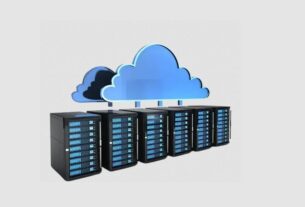QuickBooks can be used in two main versions, Desktop and Cloud. QuickBooks Desktop is the original version while QuickBooks Cloud is the newer version. Choose the one that will work best for both your business and software needs. One of the bread and butter features of QuickBooks is its ability to help you manage your business finances. With its intuitive, easy-to-navigate interface, you can pay your bills, balance your books, file taxes, and manage your payroll.
“Intuit’s cloud-based QuickBooks product is a great solution for small and midsize businesses, and we do mean small and midsize. Businesses with more than 500 clients or $1 million in revenue or with financial complexity might do better to sign with a CPA. Cloud-based QuickBooks is unlikely to scale as your company expands.”
Pros of QuickBooks Cloud
- The biggest advantage to using QuickBooks Cloud is saving you from the time and effort it takes to install and download QuickBooks on your desktop. With the vast resources of the cloud, it’s possible to customize QuickBooks Online to perfectly fit your business.
- You can access it from any internet-connected device, as long as you have the app installed. This also makes it easier to access your account from anywhere as long as you have a smartphone with a data connection.
- Install and set up is a breeze, and there is a 30-day free trial.
- All of your account data is automatically backed up nightly to a secure data center, so if your laptop or phone gets stolen or breaks, you can recover your information.
- Another advantage of using the cloud-based QuickBooks Hosting is that you can work with your accountant or bookkeeper from anywhere with a Web browser and a connection to the Internet.
- The most important thing you want is your data! As your business grows, it becomes less and less feasible to have all your financial records stored on an aging computer.
Cons of QuickBooks Cloud
The cons of using the Cloud versions of QuickBooks are
- QuickBooks cloud can be limited to file space
- It makes it hard for the user to customize it to their organization
- It takes up too much time for data to be downloaded
- The cons are that if your internet goes out, you are no longer able to access the program.
- QuickBooks cloud can be difficult to use if the internet goes out,
- There are limited customer service options in the QB cloud.
Pros of Desktop QuickBooks
With desktop-based QuickBooks, you can download your data to your favorite spreadsheet software or accountancy practice. This makes it easier to share data with other people in your company.
Offline security is one of the most appealing aspects of the QuickBooks Desktop. If you don’t have an internet connection, you can still use your software without any worries. The prices are also competitive, saving you $30 per month. Finally, the storage capacity is the largest of all three options. If your computer is not powerful enough to run QuickBooks Cloud, you will need to purchase a new one.
If you choose to use Desktop, you can install it on any computer, and QuickBooks will function just as well as if your computer had the right specs. When using Desktop, any updates and bugs will be resolved before they can interfere with your work and your data is safe. Using the cloud can be faster, but data is more susceptible to being lost. The pros of having the Desktop version are that it is easier to do customizations and there are no limits on data.
Pros of using QuickBooks Desktop to Start a Small Business are
- QuickBooks Desktop is more customizable to fit your needs.
- It Desktop offers more storage space.
- QuickBooks Desktop is cheaper.
- QuickBooks desktop provides many helpful features for managing your finances.
- The program lets you track your cash flow, maintain detailed records of transactions, and categorize expenses.
- It is an intuitive financial tool that simplifies your accounting process and helps you make better business decisions.
Cons of Desktop QuickBooks
QuickBooks Desktop, the traditional version of QuickBooks, has advantages over the cloud version. Some of the disadvantages of the QuickBooks desktop are that not all information is stored in the cloud, which means that if the internet connection is lost or goes down, then all data in that company file is inaccessible.
This means that if there is a power outage, there could be all sorts of data loss due to these companies not being able to access their data in the cloud. This could cause problems in businesses that require data to be monitored in real-time or in large amounts because data could go unchecked.
- One of the most common complaints to QuickBooks Desktop is that it creates frustration for all parties involved in the process.
- Users often find the system clunky or difficult to navigate.
- The system is not compatible with several accounting-related programs, like computer systems for payroll salaries.
Meta description
Cloud accounting software has a few distinct advantages over traditional desktop software. But before making your decision, look at what you really need from your accounting software.
Author Bio
Kashyapi Prajapati has been involved in the world of accounting software, SEO and cloud computing from a very long time and currently, she is working as a lead content writer with Cloudwalks, a QuickBooks Hosting provider which offers affordable QuickBooks hosting pricing. Cloud computing and SEO is what she eats and drinks.



